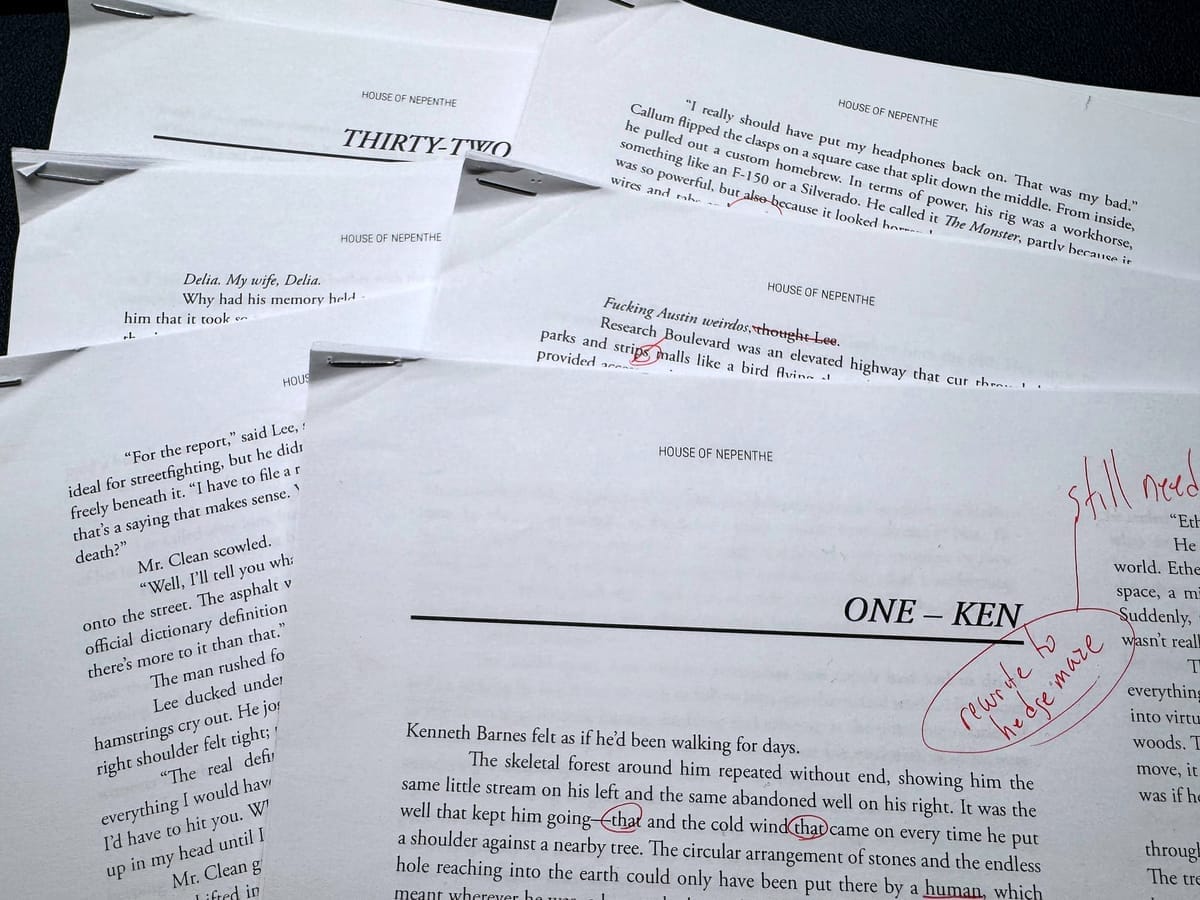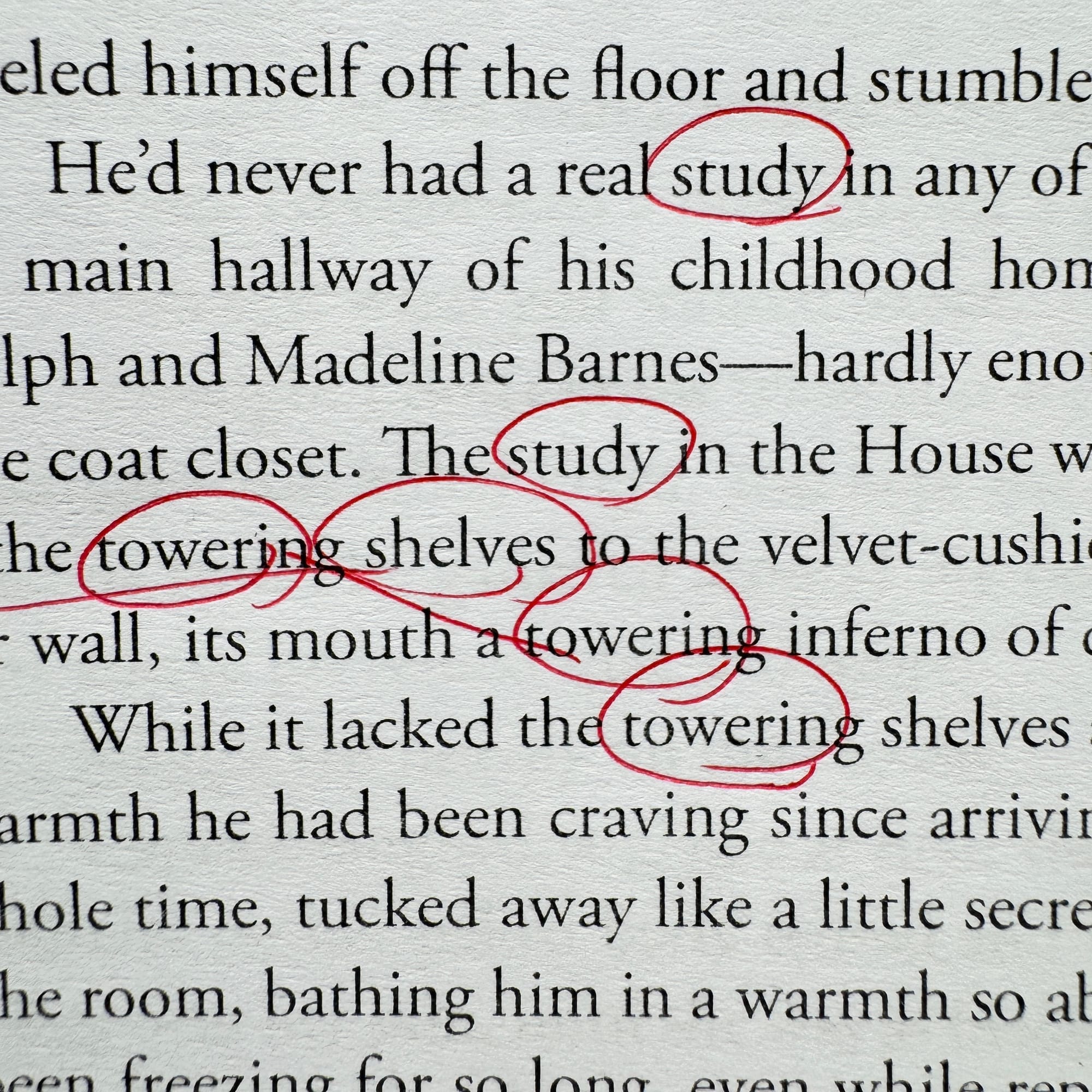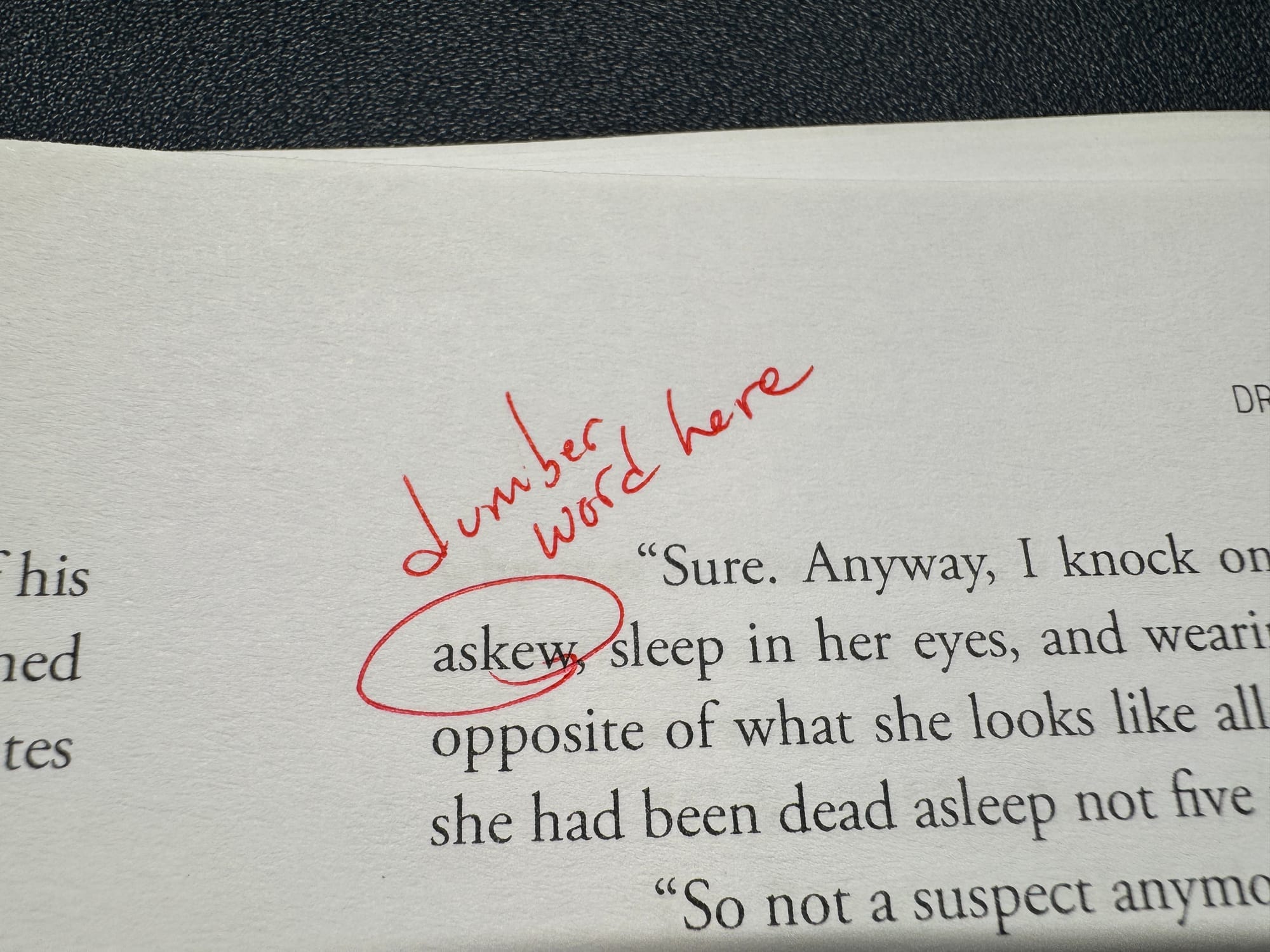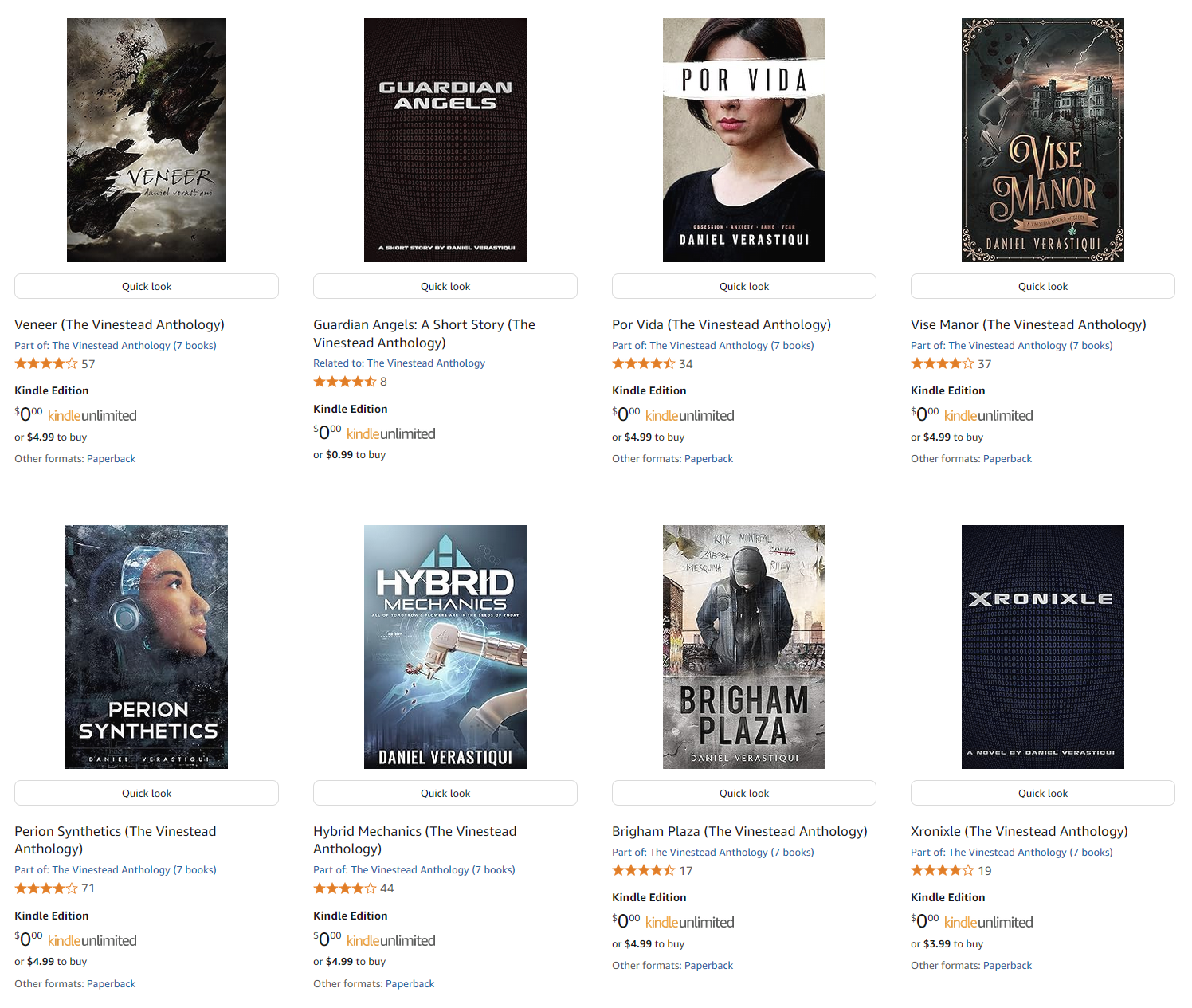State of the WIP: March 2025

Construction on the House of Nepenthe continues at a slow but steady pace. This week, I completed a type of revision pass I lovingly call The Culling. This is one of the most exciting passes of the whole process, as I get to cut down the story and remove all the fluff that annoys Carl. I'm a chronic over-writer, so it's always a necessary step to tighten up pretty much everything, from narration to description to dialogue. It's a good story; there's just too much of it right now.
Further reading: https://www.masterclass.com/articles/what-does-it-mean-to-kill-your-darlings

What Are Your Thoughts So Far?
Great question, Jay. Thank you for asking. Here's what I think about House of Nepenthe so far:
- I love writing 90's teens and their dialogue. I pretty much just pull from my childhood and how my friends and I talked to each other. We were clever but mean, and I like that dynamic with more of the former and less of the latter.
- I'm still working the beginnings and endings. The more books I write, the more I want to get these specific parts just right. I think all of my books are great stories, but the back-end statistics in KDP show that sometimes I lose readers in the first 10 pages. I'm just not doing enough to hook them.
- Most of my notes this pass were tighten, smooth, and awk. This is pretty standard, as I tend to ramble in both narration and dialogue. I write everything I want to see in a book, then I think of what you want and try to meet you in the middle.
- I love where this story ended up. The original short story was more A-B and focused just on Ken and his wife. Adding more characters and fleshing out the conspiracy has really made Ken's journey so much more impactful.
- The new text-to-speech voices in Microsoft Word are awesome. Their cadence, tone, speed, pronunciation, etc., is all a massive improvement over Microsoft David. They are, however, cheery by default, so when they read a heavy, emotional passage, they sound like psychopaths.


When Will it be Done?
It's hard to say. On one hand, I'm getting a lot faster at writing books, especially revising them. I've got my processes down to a science, and I feel like once the primary writing is down, it's all downhill running from there. However, that speed is balanced out by demands of work, family, and my extreme dedication to physical fitness (and sarcasm).
Here's how I see 2025 shaking out:
- March - June - finish revisions, proofing, etc.
- July - query every agent I can find
- September - October - final proofing and formatting
- November - preorders, advance review copies, marketing nonsense
- December - book release
House of Nepenthe takes place in December 1997, so I'd love to release it during the Christmas season. Until then... well, you know what to do.
Between Us Girls...

I couldn't be more excited about this book. I'm laughing at my own jokes, cringing at my own dialogue, and nodding approvingly at how I handle certain subjects. I'm starting to feel like this is a good story, and I'm both delighted and relieved to have arrived at that moment. Don't let anyone tell you books are easy to write. It takes so much time and effort to deliver something that looks like it has always existed (even though none of it existed just a few years ago).
Some of you are more vocal about your opinions about my books than others, and I respect those conversations where you tell me what doesn't work for you and what you'd like to see more of. I'm doing my best to deliver, so don't be surprised if/when the story winks at you. I write because it makes me happy, but entertaining you and making you feel emotions is a total bonus that I've come to love. There is plenty for new readers to enjoy, but there are also a lot of inside jokes only you and I will understand.
I'm happy to be in the final stretch. Without the anxiety of having to find a job, I can focus more deeply on the story, and hopefully, finish it up in a few months. It's close. I hope you're ready for it.
The construct bloomed like ice crystals growing in a timelapse.
There was something nostalgic about the way the Net loaded its assets, requesting them from a vast array of content delivery servers all over the world, as well as the individual caches held in nearby users. It lacked the crisp cutover from one reality to the other that VNet provided, but then there was no Vinestead International analog behind the design and management of the free Net. It came into being on its own as more and more computers connected to each other, mirroring a weighted route organization found in the first networks in the gold rush days after Bulletin Board Systems. The Net existed on its own, and when something changed—or didn’t—it was by the will of its users, not a group of rich men meeting in the boardroom at Vinestead West.
Patrick hadn’t been to his homedir in ages, but it still retained its minimalist décor, with every object a glossy black surface outlined in a brilliant pulsing white like a reverse comic book. It wasn’t a place he ever stayed long, not like in the old days when he’d spent days and weeks decorating a virtual room he never could have afforded on the outside. Nowadays, he preferred the high fidelity of a rented server at IdolHand. From there, he was only two hops from the primary trunk lines, which meant his queries could take up ten lanes of the information superhighway at a time and help him find what he was looking for faster than anyone else.
His IdolHand workspace eased into his homedir like one image dissolving into another. The black obelisk of a coffee table broke apart into pixels, spreading a fine black sand over the floor where it lingered briefly before disappearing. In place of the coffee table, a sunken circle ten feet in diameter appeared, with a single thing, high-backed chair in the center. Patrick took his place in the chair, hopping weightlessly down into the shallow hole. Portals sprung up around him stacked four high—the top row leaned over him. A keyboard that moved with his chair rose up to meet his outstretched fingers.
He began to type.